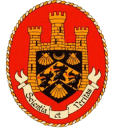
Free Meals and Bursary
Financial Support in the Sixth Form
Academic Year 2025-2026
Application Form - Internal students
If you are an existing student, with a Thomas Hardye School email address, please use the following link to complete the application:
Application Form - External Students
If you are joining our Sixth Form from another school or college, and do not yet have a Thomas Hardye School email address, please use the following link to complete the application:
The Thomas Hardye School is committed to doing everything possible to financially support students to overcome specific financial barriers to participation in their education. This usually means providing financial support to students from low-income households to assist them with:
-
School meals
-
Transport to and from school
-
Books, equipment, and specialist clothing that they need for their study programme
-
Trips that are a compulsory part of their study programme
In addition, we are able to loan laptop devices to students who do not have access to a suitable device at home to support their studies.
Free School Meals in Further Education and the 16-19 Bursary – Academic Year 2025 – 2026
Students (or a responsible adult on their behalf) must apply for Free School Meals and the Bursary for each separate academic year. Free School Meals and the Bursary will NOT automatically continue from year 12 into year 13.
Applications for Free School Meals and the Bursary in the Sixth Form should be made directly to the school. Dorset Council can only accept applications for free school meals for students in the lower school, and NOT the Sixth Form.
Students can apply for Free School Meals AND both bursaries as long as they meet the eligibility criteria for all of them.
General Eligibility Criteria for BOTH Free School Meals and Bursary
Enrolment
Students must be enroled at the Thomas Hardye School Sixth Form, to be eligible for a free meal, or the Bursary here.
Age
Students enroled in the THS Sixth Form must be aged 16 or over but under 19 on 31 August 2025 to be eligible to receive a free meal, or a bursary. Students aged 19 or over are only eligible if they are continuing on a study programme they began aged 16 to 18 (‘19+ continuers’) or have an EHC plan.
Residency
Students must meet the residency criteria in the "DfE funding rules for post-16 provision", to be eligible for a free meal, or the Bursary.
Students who will meet the residency criteria include:
-
British Citizens.
-
Irish Citizens.
-
EU citizens with settled status, who have been resident in the UK for at least 3 years.
-
Those whose passport has been endorsed to show they have right of abode in the UK, AND who have been resident in the UK for at least 3 years.
-
Those who have a certificate of naturalisation or registration as a British Citizen, AND who have been resident in the UK for at least 3 years.
-
Those with (or their spouses, civil partners and children with) refugee status (RS), humanitarian protection (HP), discretionary leave (DL), exceptional leave to enter (ELE) or exceptional leave to remain (ELR).
-
Dependants of adults residing legally in the UK who have been given immigration rights as workers to reside in the UK.
-
Asylum seekers.
This is not an exhaustive list; however, we believe that it covers the statuses which we are most likely to come across. We would encourage anyone who is unsure if they meet the residency criteria, to apply anyway, and we will be happy to help ascertain whether they meet the residency criteria.
Free School Meals in Further Education
The Thomas Hardye (THS) School Sixth Form has a duty to make Free School Meals available to eligible pupils on any day that they attend. This is allocated as a daily free allowance.
Eligibility for Free School Meals in the Sixth Form
In addition to meeting the Enrolment, Age and Residency criteria above, there is an “Eligible Benefit” criterion.
Free meals are targeted at disadvantaged students. Free meals in FE defines disadvantage as students being in receipt of, or having parents who are in receipt of, one or more of the following benefits:
-
Income Support
-
Income-based Jobseekers Allowance
-
Income-related Employment and Support Allowance (ESA)
-
Support under part VI of the Immigration and Asylum Act 1999
-
The guarantee element of State Pension Credit
-
Child Tax Credit (provided they are not entitled to Working Tax Credit and have an annual gross income of no more than £16,190, as assessed by His Majesty’s Revenue and Customs (HMRC))
-
Working Tax Credit run-on – paid for 4 weeks after someone stops qualifying for Working Tax Credit
-
UC with net earnings not exceeding the equivalent of £7,400 for each year (after tax and not including any benefits they get)
A student is only eligible to receive a free meal when they, or a responsible adult on their behalf, have made a successful application to the institution where they are enroled. The applicant will need to provide evidence of the award of qualifying benefits.
The Working Tax Credit is not a qualifying benefit for free meals, and a parent or student in receipt of Working Tax Credits is not entitled to a free meal (this is a common question sent to DfE). Qualifying benefits do include the Working Tax Credit run-on which is paid for 4 weeks after you stop qualifying for Working Tax Credit.
The 16 to 19 Bursary Fund
The 16 to 19 Bursary Fund provides financial support to help students overcome the specific financial barriers to participation they face so they can remain in education.
There are two types of 16 to 19 bursaries:
-
Bursaries for defined vulnerable groups
-
Discretionary bursaries
Both types of bursary funding are to help eligible students with the essential costs of participating, such as travel to and from school or college or to buy essential books, equipment, or specialist clothing (protective overalls, for example) that are required for their study programme. These are items a student would otherwise need to pay for to participate.
The bursaries cannot be awarded at a flat/fixed rate. Every bursary is based on need, and the amount awarded will be based on the needs of the student. Students who meet the criteria for a bursary are not automatically entitled to financial support if they do not have financial needs and/or their participation needs are covered by other sources. They may receive a lower amount of bursary or no bursary funding, if they do not have any actual participation costs.
All bursary payments will be made directly to the student, by BACS transfer to the student’s own bank account. Payments will not be made to parents or carers.
Eligibility: bursaries for young people in defined vulnerable groups
This bursary is to support students in defined vulnerable groups, who are unlikely to be receiving financial assistance from parents or carers.
To be eligible for this bursary, students must meet at least one of the following criteria:
-
Be in care (local authority only, and NOT a private foster care arrangement made between the parent and the person who will care for the child)
-
Be care leavers (looked after for a period of 13 weeks consecutively (or periods amounting to 13 weeks), beginning after the age of 14 and ending after the age of 16)
-
Receive Income Support (IS), or Universal Credit (UC) because they are financially supporting themselves or financially supporting themselves and someone who is dependent on them and living with them, such as a child or partner.
-
Receive Disability Living Allowance (DLA) or Personal Independence Payments (PIP) in their own right as well as Employment and Support Allowance (ESA) or UC in their own right.
Eligibility: discretionary bursaries
This bursary is intended to support students from lower-income families, who may experience financial barriers that could prevent them accessing their education.
This policy is set by the school, and reviewed annually. Eligibility is based on household income, as well as the number of dependent children in the household. For the 2025-2026 academic year, students will be eligible for discretionary bursary support if they, or the parent/carer that they live with, are in receipt of one of the benefits defined below or meet the household income criteria.
Receipt of any of the following benefits will result in eligibility for the discretionary bursary:
-
Income Support
-
Income-based Jobseekers Allowance
-
Income-related Employment and Support Allowance (ESA)
-
Support under part VI of the Immigration and Asylum Act 1999
-
The guarantee element of State Pension Credit
-
Child Tax Credit (provided they are not entitled to Working Tax Credit and have an annual gross income of no more than £16,190, as assessed by His Majesty’s Revenue and Customs (HMRC))
-
Working Tax Credit run-on – paid for 4 weeks after someone stops qualifying for Working Tax Credit
-
UC with net earnings not exceeding the equivalent of £7,400 for each year (after tax and not including any benefits they get)
The discretionary bursary will also be available to students in either of the following circumstances:
-
Their household income is below £30,000.
-
Their household income is below £32,000, and there are three or more dependent children living permanently in the household.
We will require proof of income.













